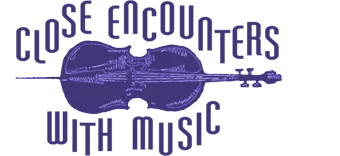The New York Times: Rescuing Neglected Composers by Allan Kozinn
The cellist Yehuda Hanani has been fascinated in recent years with the music of Eduard Franck, a German composer who studied with Mendelssohn and was highly regarded by Schumann. During the Mendelssohn bicentenary in 2009 Mr. Hanani saw an opportunity to bring Franck’s music to light by programming works of both composers in the series he directs, Close Encounters With Music. Mr. Hanani revived and expanded on that idea at the Frick Collection on Tuesday evening in a program that included not only Mendelssohn and Franck scores but also a piece by Moritz Moszkowski, the turn-of-the-last-century virtuoso pianist who, it turns out, studied composition with Franck.
The program’s centerpiece was what was said to be the American premiere of Franck’s Cello Sonata No. 2 in F (Op. 42), an essay in Mendelssohnian tunefulness tempered by hints of Brahmsian drama. Its long, wide-ranging slow movement shows another influence too: the piano writing, brought to life deftly by James Tocco, briefly channels Bach – melodically, rhythmically and in its bracing chromaticism – before returning to more contemporary (in late-Romantic terms) meditations.
Though Franck took care to give both players substantial material and lost few opportunities for lively interplay, he clearly meant the brighter spotlight to shine on the cello line. Mr. Hanani’s rich tone and thoughtful phrasing made a powerful case for it in a performance that had a convincing subtext: The 19th-century cello repertory is not so vast that cellists (or their admirers) should neglect works this opulently lyrical.
Given Moszkowski’s enduring reputation as a pianistic firebrand and the technical dazzle that his solo piano works require, you might expect his Suite in G minor (Op. 71) to be packed with keyboard fireworks. But Moszkowski, seemingly bent on showing that his compositional imagination was not thoroughly bound up in his instrumental technique, gave the most ear catching music to a pair of violins, which spin out sweet, long-lined melodies, both in tandem and in dialogue. The players here, Shmuel Ashkenasi and Nurit Pacht, played the music with more energy than beauty, but its considerable charms shone through.
Mr. Ashkenasi, Mr. Hanani and Mr. Tocco closed the concert with a soulful, fiery performance of Mendelssohn’s Piano Trio No. 2 in C minor (Op. 66). Although Mr. Ashkenasi sounded slightly abrasive at times in the Moszkowski, his tone here was focused and sweet, particularly in the lush Andante espressivo. The ensemble’s reading was brisk but never breathless, and it was at its tightest – and steamiest – in the Allegro appasionato finale.

